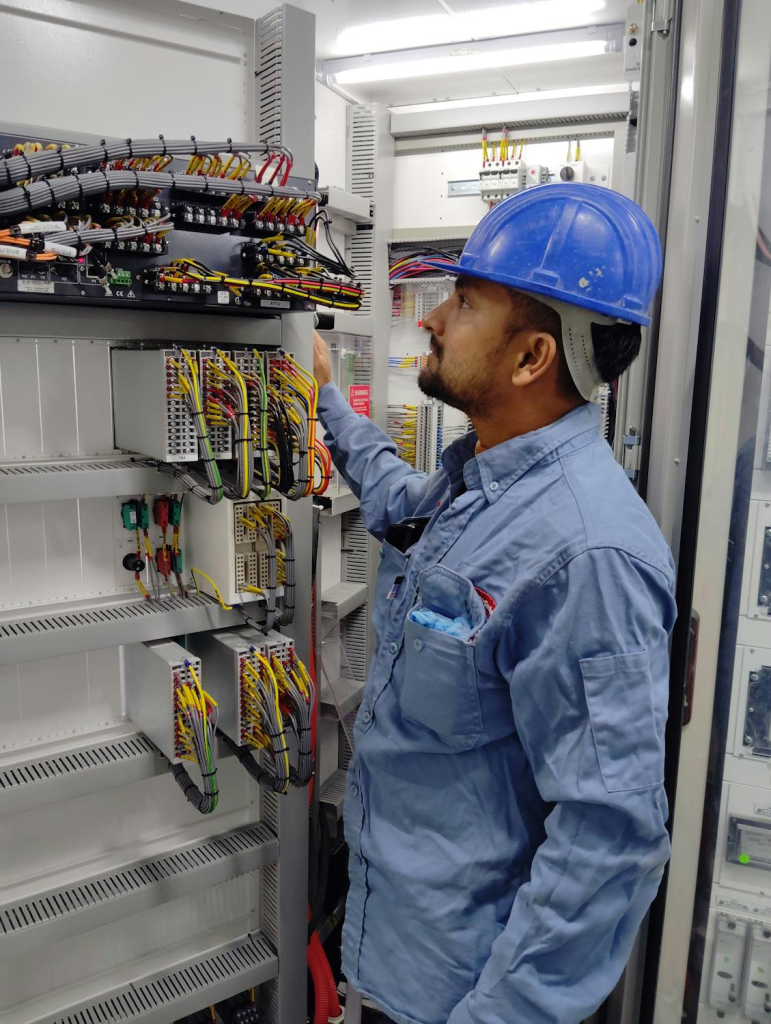Electrical maintenance is vital in keeping electrical systems safe, efficient, and reliable. However, many people have misunderstandings about it that lead to neglect, improper handling, or even dangerous situations. By addressing the common myths about electrical maintenance, this article provides straightforward answers to help you better care for your electrical systems.

Click for more and explore how our website can support your electrical safety needs.
Myth 1: Electrical Maintenance Is Only Necessary When There’s A Problem
One of the most widespread misconceptions is that electrical maintenance is only needed after something goes wrong. This belief is problematic because it encourages a reactive approach, where maintenance is delayed until an issue causes a fault or outage.
Why Electrical Maintenance Should Be Preventive
Electrical systems are complex and sensitive. Without regular attention, small issues such as minor corrosion or loose wiring can develop into significant faults, sometimes causing equipment failure or safety hazards like electrical fires. Preventive maintenance involves scheduled inspections and servicing before problems arise. This approach:
- Identifies faults early, often before they become visible or cause system downtime.
- Saves money by preventing expensive emergency repairs.
- Ensures electrical systems run safely and efficiently.
Maintaining an electrical system only when problems appear puts property and people at risk. Maintenance should be considered a routine care process, similar to servicing a car, rather than something to address only in emergencies.
Myth 2: Electrical Maintenance Is Too Expensive And Not Worth It
Another common myth is that electrical maintenance costs are prohibitive, discouraging many from scheduling regular inspections or servicing.
Understanding The Costs And Benefits
While electrical maintenance involves a cost, it is generally much lower than what emergency repairs or replacements can cost. The expenses saved by regular upkeep include:
- Avoiding sudden system breakdowns that interrupt business or household activities.
- Preventing damage to appliances and equipment, which can be expensive to replace.
- Reducing the risk of accidents caused by faulty electrical components.
Regular maintenance helps keep electrical systems energy-efficient. Faulty wiring or damaged components can increase power consumption, increasing electricity bills. Maintenance tasks such as cleaning contacts and tightening connections reduce energy wastage, providing further savings.
Therefore, electrical maintenance should be viewed as an investment that protects safety and reduces costs over time.
Myth 3: Only Licensed Electricians Can Perform Electrical Maintenance
There is a belief that every aspect of electrical maintenance requires a licensed electrician. While licensed professionals are essential for most electrical work, this myth overlooks the role property owners can safely play.
When Can Non-Professionals Perform Maintenance?
Some maintenance tasks are simple and safe enough for property owners or facility managers to carry out, such as:
- Conducting basic visual inspections to spot obvious damage or wear.
- Checking if outlets and switches are functioning.
- Replacing blown fuses or light bulbs.
However, any work involving repairs, electrical testing, or modifications must be completed by licensed electricians. Professionals have the training, tools, and knowledge to handle electrical systems safely and ensure compliance with Australian electrical safety standards.
By understanding this distinction, property owners can contribute to maintenance while ensuring that complex tasks are left to qualified personnel.
Myth 4: Electrical Systems Don’t Need Regular Maintenance If They Seem Fine
Because electrical systems often work quietly in the background without visible issues, many assume they don’t require maintenance unless a problem arises.
Why Routine Checks Matter
Electrical components degrade gradually due to natural wear, exposure to heat, dust, moisture, and mechanical stress. Problems like loose connections, corrosion, or insulation breakdowns can develop silently. These issues can go unnoticed without regular inspections until they cause equipment failure or safety hazards.
Routine maintenance ensures:
- Early detection of faults before they escalate.
- Continuous compliance with safety regulations.
- Prevention of costly downtime.
By scheduling regular checks, you can keep electrical systems operating safely and efficiently without waiting for visible signs of trouble.
Myth 5: Electrical Maintenance Is Only For Commercial Or Industrial Properties
A frequent misconception is that electrical maintenance is only necessary for large commercial or industrial installations.
Why Maintenance Matters For All Properties
Every property with electrical wiring benefits from regular maintenance, including residential homes and small businesses. Regardless of size, electrical systems are subject to wear and potential faults.
In homes, maintenance:
- Protects occupants from hazards like electric shocks or fires.
- Keeps household appliances running smoothly and efficiently.
- Reduces energy costs by ensuring systems operate properly.
Electrical faults can cause interruptions that affect small businesses’ productivity and revenue. Regular maintenance minimises these risks and ensures compliance with occupational health and safety requirements.
In short, electrical maintenance is important for all properties, not just large facilities.
Myth 6: New Electrical Installations Don’t Need Maintenance
People often believe that a newly installed electrical system is problem-free and requires no further attention.
Why New Systems Need Attention
While new installations should meet high standards, issues can arise early on. Installation errors, faulty components, or environmental factors can affect even brand-new systems. Early maintenance checks help to:
- Confirm that the installation was done correctly.
- Identify any hidden faults or damage.
- Ensure components are working as intended.
Regular inspections after installation help maintain safety and prevent small problems from turning into major faults.
Myth 7: Electrical Maintenance Only Involves Fixing Problems
Maintenance is often misunderstood as limited to repairs after a problem is detected.
What Electrical Maintenance Includes
Electrical maintenance is a comprehensive process that involves much more than fixing faults. It includes:
- Testing safety devices such as circuit breakers and residual current (RCDs) to ensure they operate correctly.
- Cleaning electrical panels and components to prevent dust build-up, which can cause overheating or corrosion.
- Tightening connections to avoid loose wiring that could lead to sparking or power loss.
- Upgrading outdated wiring, switchboards, or devices to improve safety and efficiency.
- Keeping documentation to comply with Australian safety regulations.
A proactive maintenance approach keeps electrical systems safe, reliable, and efficient, reducing the likelihood of emergency repairs.
Myth 8: DIY Electrical Maintenance Is Safe And Cost-Effective
Many homeowners attempt to perform electrical maintenance tasks themselves to save money.
The Dangers Of DIY Electrical Work
Electrical systems are potentially dangerous and require specialist knowledge. Attempting DIY maintenance can lead to:
- Severe injuries, such as electric shocks or burns.
- Damage to electrical components or systems.
- Voiding warranties or insurance claims.
- Non-compliance with safety regulations results in penalties.
Licensed electricians have the training, experience, and equipment to safely inspect, test, and repair electrical systems. Their involvement ensures work is done correctly and safely.
Myth 9: Electrical Maintenance Has No Impact On Energy Efficiency
It is commonly believed that electrical maintenance does not affect how efficiently a system uses energy.
How Maintenance Can Reduce Energy Waste
Electrical systems with damaged or dirty components face increased resistance, making them work harder and consume more electricity. Common issues include:
- Dust builds up on contacts and switches.
- Loose wiring is causing arcing and power loss.
- Worn or corroded connections increase electrical resistance.
Maintenance tasks such as cleaning, tightening, and replacing worn parts improve system efficiency and reduce energy consumption, which lowers electricity bills and environmental impact.
Myth 10: Electrical Maintenance Is A One-Off Task
Some think electrical maintenance is something you do once, with no need for follow-up.
Why Ongoing Maintenance Is Essential
Electrical systems face constant wear and environmental exposure. To keep systems safe and operational:
- Maintenance should be regular and ongoing.
- Scheduled inspections help catch new or recurring problems.
- Safety standards and technologies change and require updates.
- Continuous maintenance extends the life of electrical components.
A one-off approach to electrical maintenance risks overlooking emerging faults and safety issues, which can lead to costly repairs or accidents.
Conclusion
Understanding the common myths about electrical maintenance clears confusion and highlights the importance of regular, professional care for electrical systems. Maintenance is preventative, affordable, and essential for safety, efficiency, and compliance.
Avoiding DIY risks and recognising the need for ongoing inspections helps protect your property and loved ones, whether residential or commercial. Electrical maintenance should be a routine part of managing your property in Australia.
Frequently Asked Questions
Is Electrical Maintenance Only Necessary When A Problem Occurs?
No, electrical maintenance should be preventive rather than reactive. Regular inspections and servicing help detect minor issues early, preventing costly breakdowns and safety hazards like electrical fires. Treating maintenance as routine care keeps your systems safe, efficient, and reliable.
Can I Safely Perform Electrical Maintenance Tasks Myself?
While property owners can perform simple tasks, like checking outlets or replacing light bulbs, most electrical maintenance should be handled by licensed electricians. Professionals have the proper training and tools to safely perform repairs, testing, and upgrades and ensure compliance with safety standards.
Does Electrical Maintenance Save Money In The Long Run?
Regular maintenance helps avoid expensive emergency repairs, equipment damage, and energy wastage caused by faulty components. Maintaining your electrical system ensures it operates efficiently, reduces electricity bills, and prevents costly downtime, making it a wise investment.
